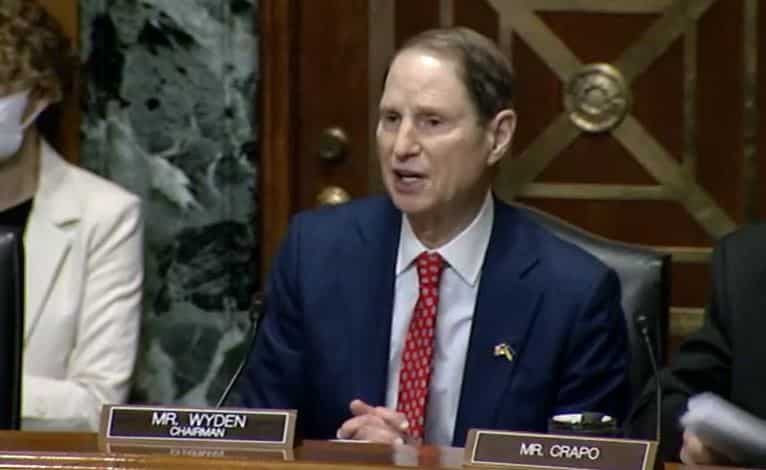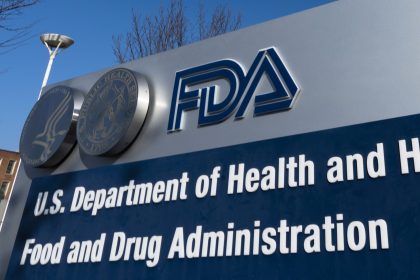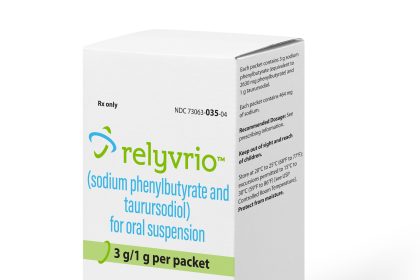Senate Finance Committee Far From Consensus on Drug Price Solution

WASHINGTON — As the Senate Finance Committee waded into the hot-button topic of prescription drug prices on Wednesday two things were clear from the outset: everyone agrees something needs to be done to make drugs like insulin more affordable and there’s wide disagreement on how to go about it.
“We’re holding this hearing this morning because there is nothing in our health care system as broken as what Americans are asked to pay for lifesaving medicines like insulin,” said Committee Chair Ron Wyden, D-Ore., as he began Wednesday’s proceedings.
In short, Wyden said, the big drug companies have average Americans “over a barrel” with Medicare barred from negotiating to set prices.
“As a result, Medicare, a program that represents tens of millions of seniors and even more taxpayers, is being asked to take on Big Pharma with both hands tied behind its back,” he said.
“The consequences are clear,” Wyden said later. “People all over the country know that they are going to get mugged [by the big pharmaceutical companies] when they go to the pharmacy this morning … and Big Pharma is treating Medicare like it has cracked the ATM.”
“So it’s time for action. This has been the longest running battle since the Trojan War. The Democrats have a plan and we need to enact it quickly,” he said.
The plan Wyden was referring to is the same plan the Biden administration and congressional Democrats got behind last fall.
It calls for allowing Medicare to negotiate prices for high-cost prescription drugs, including those seniors get at the pharmacy counter (through Medicare Part D), and drugs that are administered in a doctor’s office (through Medicare Part B).
Under the proposal, drugs would become eligible for negotiation once they have been on the market for a fixed number of years: nine years for small molecule drugs and 12 years for biologics.
Medicare would negotiate up to 10 drugs per year during 2023, with those prices taking effect in 2025, increasing to up to 20 drugs per year.
A separate provision would impose a tax penalty on drug companies that increase prices faster than the rate of inflation, and another could cap the out-of-pocket cost for seniors at $2,000 a year for their drugs under Medicare Part D.
Ranking member Mike Crapo, R-Idaho, agreed that prescription drug prices are too high.
“Unfortunately,” he said, “all signs seem to indicate a partisan path forward on drug pricing based on deeply problematic Build Back Better proposals that impose bureaucratic government price controls with a host of bad consequences for consumers, patients and small businesses.”
Both men came armed with studies and statistics to brace their basic positions. In Wyden’s case it was a comparison compiled by committee staffers of the price of commonly prescribed prescription drugs on the U.S. and international markets over a five year period beginning in 2015.
“In every case, the U.S. price started out higher than the international price, and the U.S. price went up each year, while the international price stayed relatively stable,” Wyden said. “By 2020, Americans were paying two, three, and even four times as much as international patients for the same medications.”
Rather than address Wyden’s assertions directly, Crapo pointed to research from the University of Chicago and others that suggest the price controls at the heart of the Democrats plan would dramatically slow the search for new and innovative drug treatments with the result being 135 fewer new drug approvals in the next two decades.
Another study Crapo pointed to found that under the Democrats’ plan Medicare payments to physicians and other frontline health care providers would go down as much as 40%.
Incidentally, last year Crapo reintroduced the Lower Costs More Cures Act, which he described on Wednesday as “comprehensive legislation that contains dozens of concrete proposals aimed at lowering the out of pocket costs of prescription drugs while strengthening supply chain oversight and combating foreign freeloading.
“With inflation at a 40 year high, it would bring peace of mind to seniors across the nation by placing a hard cap on out of pocket spending on drugs under Medicare Part D,” he said. “Our bill would allow beneficiaries to access additional Part D plan choices, including low deductible and reduced cost sharing options, as well as plans that pass more discounts directly on to consumers at the pharmacy counter.
“For seniors with diabetes, we would build on the work of the Trump administration which established a game changing program that guarantees access to insulin at no more than $35 a month,” Crapo said. “Our legislation would permanently protect and extend this initiative which already covers more than two in every five seniors enrolled in Part D.”
“The Lower Costs More Cures Act would build on the success of Part D by advancing scores of pro-patient solutions for Medicare and the broader prescription drug market. Our legislation would strengthen cost comparison tools, remove disincentives for prescribing lower cost medications, and enlist a chief pharmaceutical negotiator to drive better trade deals for Americans and facilitate outcomes based arrangements for cutting edge therapies.
“Importantly, all of these solutions could pass both chambers of Congress with overwhelming support,” Crapo said. “Virtually every provision in the Lower Costs More Cures Act reflects a bipartisan proposal with broad buy-in across the political spectrum. If allowed to advance, it could head to the president’s desk within days delivering meaningful relief to Americans.”
The witnesses before the panel were equally divided with Rena Conti, Ph.D, associate professor of the Department of Markets, Public Policy and Law at Boston University largely agreeing with the Democrats, and Douglas Holtz-Eakin, Ph.D, president of the American Action Forum think tank in Washington, espousing views that largely complemented the Republican position.
For instance, Holtz- Eakin was largely unsatisfied with the price negotiation proposal saying that in actual practice it would be a mechanism through which the HHS secretary could arbitrarily set a lower price for classes of drugs.
“This is not good negotiation,” he said. “And this government price setting mechanism will reach into every corner of the health care sector.”
He also maintained that government price-setting mechanisms “have a long record of unintended consequences and of being detrimental to their cause.”
Holtz-Eakin also politely disagreed with Conti’s assertion that the measures the Democrats have proposed would have little effect on future prescription drug development.
“Drug development is an extremely risky business,” he said. “Only about 8% of the drugs that make it to trials make it to market within 10 years time.”
“The only question is how much less research would occur under the proposal, but the direction is unmistakable,” he said.
But Holtz-Eakin was far from a naysayer, simply rejecting a proposal out of hand.
“There are proposals on which there is agreement across the aisle, and among them is a Part D redesign,” he said. “And the redesigns that have been proposed share some key features: First, they would cap the exposure of seniors to extreme out-of-pocket expenses. That’s a very desirable thing to do.
“Number two, you can protect the taxpayer from picking up the bulk of the costs in the party program by shifting responsibilities in the reinsurance to the manufacturers and prescription drug plan. That would lead to lower prices,” he said.
Like Holtz-Eakin, Stephen Ezell, vice president of Global Innovation Policy at the Information Technology and Innovation Foundation, in Washington, D.C., was largely bullish on the things as they stand now.
“Over the past two decades, drug companies in America have delivered just under half of the world’s new drugs. It is therefore imperative we preserve a broad policy environment that has been so successful in making America the world healer, especially at a time when we are looking to turn the page on a three-year pandemic, and gear up for a Cancer Moonshot,” he said.
According to Ezell, “drug expenditures for retail prescriptions as a share of America’s total health expenditures have been roughly stable for the past two decades at about 9% of total health care costs.
“And projections suggest they will remain stable for the rest of this decade,” he said.
“Moreover, US pharmaceutical spending as a share of total health expenditures is right in line with those of OECD nations and in fact, most others are higher,” he said. “In fact, the Bureau of Labor Statistics finds that over the past 15 years, American consumer expenditures on health care overall almost doubled, but their expenditures on drugs actually went down by 8%.’
“Likewise, drug prices are not driving today’s inflation. Over the past year, prescription drug prices have risen only 2.4%, just 1/3 of the increase in the consumer price index,” Ezell said.
The last speaker at Wednesday’s hearing was Stephanie Stern, vice president of advocacy for the National Multiple Sclerosis Society.
Stern’s mother was diagnosed with MS in 1981, before there were any real treatment options available, and the family has struggled even as drug treatments have emerged.
“My parents moved into a smaller house, replaced their cars with less expensive options and cut every possible corner to make ends meet,” Stern said.
Still, they found they could not afford her medication even with charitable assistance. “My dad is 69 years old and he has his own health challenges and he has had to get a job driving a city bus in town just to pay the bill,” Stern said.
She went on to say the current list price of her mother’s medication is nearly $104,000 a year, and that the price has increased 5.7% in the last year and 35% over the last five years.
“The current system is not working in the best interest of people with MS and other chronic conditions,” Stern said. “It is unconscionable that in 2022 people with MS and other health conditions cannot pay for their medications would be in the same position my mom was in in the 1980s with no treatment options.
“We strongly believe that Medicare negotiation and inflationary rebates along with out of pocket caps strike that right balance between creating affordability and maintaining incentives for manufacturers to innovate,” she said.
Dan can be reached at [email protected] and at https://twitter.com/DanMcCue.























